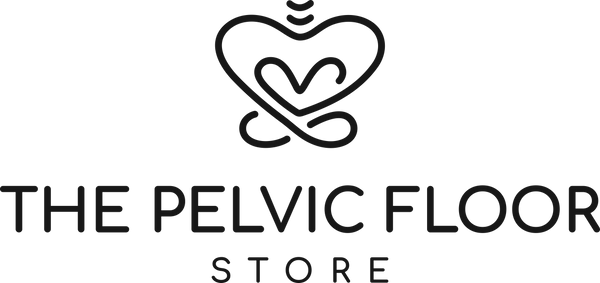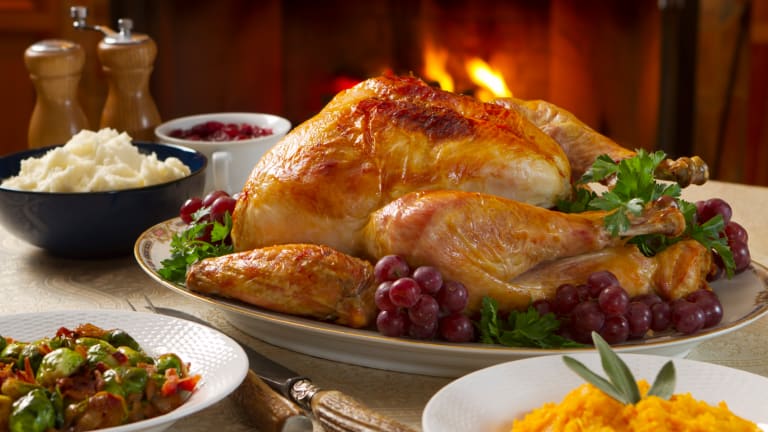Thanksgiving, Stress, Wellness & Pelvic Health.
By Dr. Betsy A.B. Greenleaf DO, FACOOG(Distinguished)
A time for giving thanks has turned into a holiday of travel, battling supermarket lines, cooking, and over-eating. For some, it is a joyous occasion of bringing friends and family together, while others it can be a stressful or lonely occasion. The point of this holiday is to take the time to reflect on what you are most thankful.
History
The first thanksgiving was a multiple day harvest celebration between the pilgrims and native Americans in 1621, though celebrations of thanks were commonplace in Europe prior to what Americans think of as the first Thanksgiving. It became a federal holiday in 1789 through a proclamation by George Washington, though it was not decided to be celebrated on the fourth Thursday of November until 1941. (Wikipedia, 2019).
Food
Food nourishes our bodies, but the act of eating is a common activity that takes on social connotations of bringing people together (Fox, 2019). Traditional foods commonly served during Thanksgiving include turkey, stuffing, cranberries, potatoes and pumpkin pie.
Turkey
Many people blame eating turkey for the post-Thanksgiving meal sleepiness, however it is more likely due to spikes and drops in blood sugar from eating a large meal that is loaded with carbohydrates such as potatoes, sweets and the addition of alcohol ( (Lewis, 2013).
Turkey is a wonderful lean protein with many health benefits. Some of the great nutrients found in turkey include
- Protein-High protein foods aid in feeling full and manage insulin and blood sugar levels. Protein also provides building blocks for our tissues and muscles.
- Vitamin B6 is involved in over 100 different processes within the body. It aids with blood regulation, immune function, glucose metabolism and protein processing (NIH, 2019)
- Vitamin B12 is also used in many processes within the body but specifically aids in cognition, energy, DNA synthesis and the formation of red blood cells.(NIH, 2019)
- Niacin or Vitamin B3 is a powerhouse vitamin and is involved in over 400 processes within the body. It provides energy for our mitochondria or cellular energy factories. It aids in decreasing oxidative stress, anti-aging, and cellular metabolism. (NIH, 2019)
- Choline is a nutrient needed for our cell walls. It is important in the 3 M’s: memory, mood and muscle. (NIH, 2109).
- Selenium is a trace element that is important in reproduction, thyroid support, immunity, cancer prevention, and protection from oxidative stress. (NIH, 2019)
- Zinc is an essential mineral that plays a role in immunity and wound healing. (NIH, 2019)
- Tryptophan is an amino acid that is important to produce niacin, melatonin, and serotonin. It plays a role in mood, sleep regulation, hormone production and protection against oxidative stress. (Medline Plus, 2019).
Go ahead and eat your turkey. It has excellent health benefits and may prevent you from filling up on other unhealthy foods.
Other Traditional Foods.
Cranberry sauce
Cranberries contain proanthocyanins (PAC) type A known to prevent the adherence of bacteria to tissue especially for the prevention of urinary tract infections. However, cranberries on their own can be very tart, thus preparations often contain large amounts of sugar. Just because you are eating cranberry sauce or cranberry juice do not think you are healthy, the sugars contained in these foods are very inflammatory and can promote infection and oxidative stress. (Baranowska M, 2016)
Potatoes
White potatoes are a mixed bag, meaning they have health benefits and health risks. Most of the healthy components are found in the skin, thus eating the whole potato is ideal. Potatoes are high in fiber. Fiber is needed for healthy bowel movements, lowering the risk of colon cancers and pelvic functioning. Normal pelvic functioning.
Along with many vitamins and minerals, potatoes contain quercetin which has excellent anti-inflammatory effects. Quercetin is often recommended for pelvic dysfunctions related to inflammation and allergy, such as Interstitial Cystitis. (Medical News Today, 2019)
However, potatoes are part of the nightshade family that includes tomatoes, peppers, and eggplants. Nightshade vegetable contains chemicals that can worsen autoimmune conditions, inflammatory bowel disease, and other bodily inflammatory conditions. White potatoes are high in simple carbohydrates, which can affect sugar metabolism, add to diabetes, and can also be inflammatory. (Pearson, 2017)
Overall, a better option for a potato is to skip the mashed potatoes and go for a sweet potato instead. Sweet potatoes are not part of the nightshade family. They contain numerous nutrients that contribute to a healthy gut, prevention of cancer and vision. Once again remember that adding marshmallows, brown sugar, and any other sweeteners to your sweet potato negates the health benefits of this beautiful tuber. (Julson, 2019)
Stuffing and Pies
Once again, we visit the world of high sugars and simple carbohydrates. Unfortunately, there is nothing great about these foods. Sugars and carbohydrates mess with blood sugar levels and can cause inflammation in the body. Knowing this, you must decide whether eating these foods is worth the side effects. Of course, moderation is the key, and if these are foods that you do not eat all the time, indulging is not the end of the world. On the other hand, be prepared that inflammatory reactions and swelling can be worse for a few days after consumption. If you suffer from pelvic pain, then avoidance of these foods may be prudent.
Vegetables
Green vegetables are attractive options for vitamins, minerals, and nutrients. However sensitive individuals may have problems with diets that are high in oxalates. Vulvodynia, pelvic pain, and certain types of kidney stones can be worsened in those sensitive to oxalates. Oxalates can be found in dark leafy vegetables, potatoes, and cranberries. (University of Michigan, 2019)
Your Best Food Options
So now that you are thoroughly confused about what to eat, here is the overview. It depends on your food sensitivities and your medical condition as to what you should eat. Food testing and elimination diets before the holidays is the ideal option to identify what you can individually tolerate.
Now that Thanksgiving is upon us, what should you do? Make sure that food does not become a stressor. Relax and enjoy yourself. For the most part you are safe with turkey and minimally processed foods and eating a rainbow of vegetables. Avoidance of high sugar and high carbohydrates are other general rules.
Stress
Holidays can bring about much stress. Thanksgiving is the most traveled time of the year. Expectations of having a “perfect” holiday can raise stress levels, and family can create stress. Stress can bombard the body with inflammation and decrease your healing and immune system, nevertheless the effects on your mental health.
Best Options for A Stress-Free Holiday
- Do Not Set Expectations: If you do not set them, you cannot be disappointed.
- Be Mindful: Stay in the moment. Try not to worry about the future or ruminate about the past. Focus on the here and now.
- Find Time for Yourself. If the stressors of family or large gatherings become too much, excuse yourself for a mini-mental vacation. The best options are to step outside for some fresh air, close your eyes for a moment or go to the restroom. Bathrooms are great places to get away from people.
- Blame it on Turkey: If stress becomes too much, excuse yourself to bed, or leave the event. Just state you are exhausted and need to sleep. Blame it on the tryptophan in the turkey.
- Stay hydrated: Drinking lots of water is excellent for your pelvic health, skin health, and general well-being. It will also prevent you from overeating and will give your mouth something to do instead of eating pie.
- Do Not be Hard on Yourself: So, you ate some pie, you will survive. Do not be harsh or blame yourself for going off your diet or eating less than ideal foods. Enjoy the moment. Savor the feeling and taste of these foods and give yourself a break. If you have side effects from these foods, take a deep breath and realize this will not last forever.
Take the time to think about what makes you happy and content. These thoughts produce hormones that increase mood and decrease inflammation and stress. Thanksgiving is not called Stress-giving. Remember, Thanksgiving is a time to reflect on what you are most thankful for.
I am most thankful for is the fact that you are reading this article. Happy Thanksgiving.
Works Cited
Baranowska, M, B. A. (2016, December 31). Antioxidant and antimicrobial properties of bioactive phytochemicals from cranberry. Postepy Hig Med Dosw, 1460-1468. doi:10.5604/17322693.1227896.
Fox, R. (2019). Food and Eating, An Anthropological Perspective. Retrieved November 27, 2019, from SIRC: http://www.sirc.org/publik/food_and_eating_1.html
Julson, E. (2019, January 9). 6 Surprising Health Benefits of Sweet Potatoes. Retrieved November 27, 2019, from https://www.healthline.com/nutrition/sweet-potato-benefits#section4
Lewis, T. (2013, November 26). Thanksgiving Myth Busted: Eating Turkey Won't Make You Sleepy. Retrieved November 27, 2019, from Live Science: https://www.livescience.com/41543-thanksgiving-myth-busted-eating-turkey-won-t-make-you-sleepy.html
Medical News Today. (2019, November 27). How Can Potatoes Benefit My Health? Retrieved 2019, from Medical News Today: https://www.medicalnewstoday.com/articles/280579.php
Medical News Today. (2019). Is Turkey Good For You? Retrieved November 27, 2019, from Medical News Today: https://www.medicalnewstoday.com/articles/285736.php#benefits
Medline Plus. (2019, November 6). Tryptophan. Retrieved November 27, 2019, from Medline Plus: https://medlineplus.gov/ency/article/002332.htm
NIH. (2019, July 9). NIacin. Retrieved November 27, 2019, from National Institutes of Health: https://ods.od.nih.gov/factsheets/Niacin-HealthProfessional/
NIH. (2019, October 17). Selenium. Retrieved November 27, 2019, from National Institutes of Health: https://ods.od.nih.gov/factsheets/Selenium-HealthProfessional/
NIH. (2019, July 9). Vitamin B12. Retrieved November 27, 2019, from National Institutes of Health: https://ods.od.nih.gov/factsheets/VitaminB12-HealthProfessional/
NIH. (2019, September 19). Vitamin B6. Retrieved November 27, 2019, from National Institues for Health: https://ods.od.nih.gov/factsheets/VitaminB6-HealthProfessional/
NIH. (2019, July 10). Zinc. Retrieved November 27, 2019, from National Instiutes of Health: https://ods.od.nih.gov/factsheets/Zinc-HealthProfessional/
NIH. (2109, July 9). Choline. Retrieved November 2019, 2019, from National Institutes of Health: https://ods.od.nih.gov/factsheets/Choline-HealthProfessional/
Pearson, K. (2017, June 23). Are Nightshades Bad for Yourh Health. Retrieved November 27, 2019, from Healthline: https://www.healthline.com/nutrition/nightshade-vegetables#section3
University of Michigan. (2019). Foods High in Oxalate. Retrieved November 27, 2019, from Michigan Medicine: https://www.uofmhealth.org/health-library/aa166321
Wikipedia. (2019, November 27). Thanksgiving. Retrieved November 27, 2019, from Wikipedia: https://en.wikipedia.org/wiki/Thanksgiving_(United_States)

